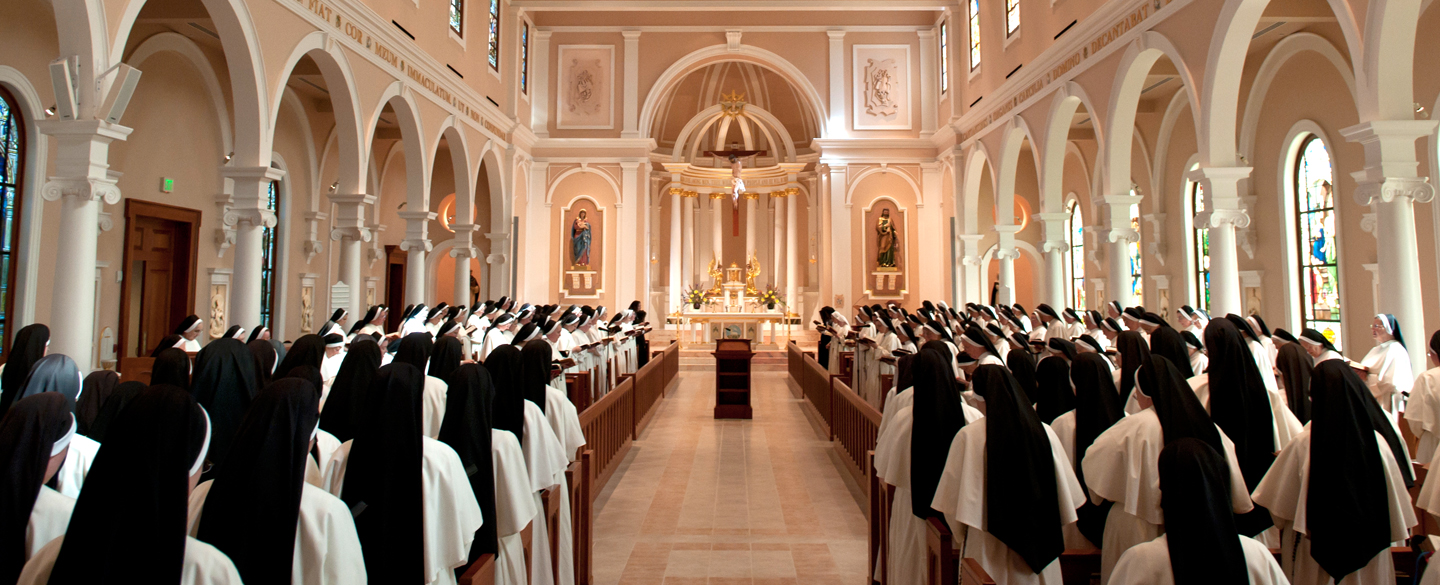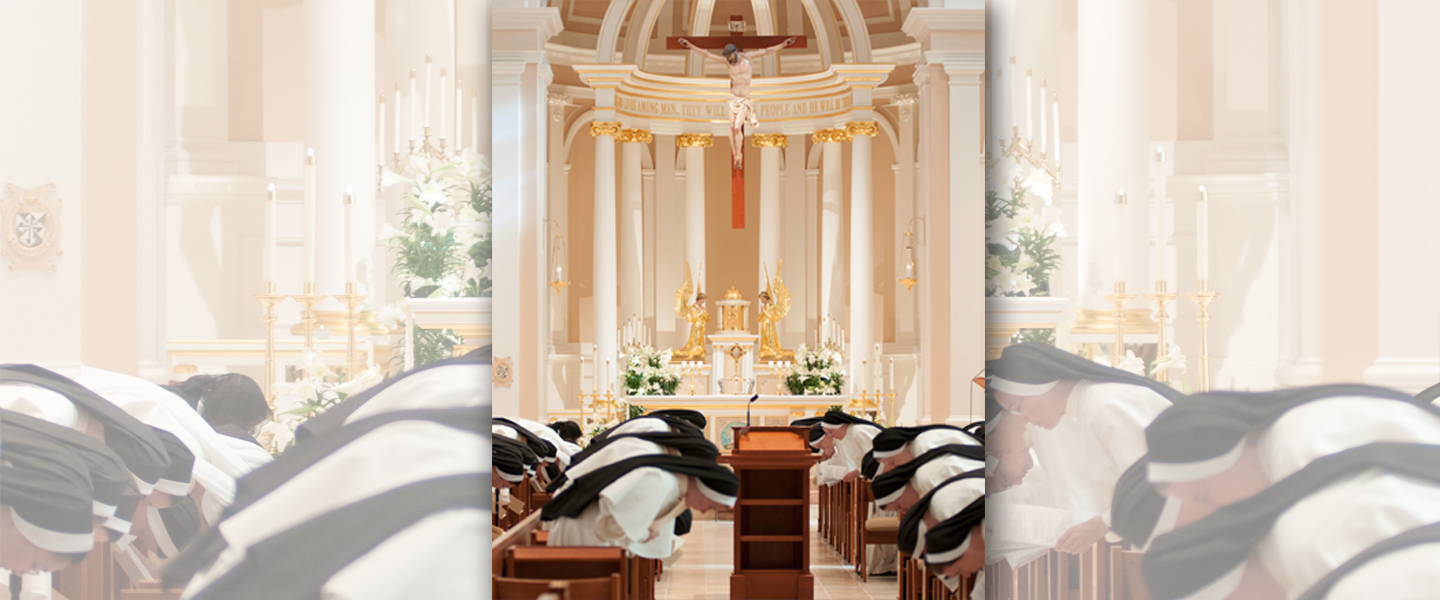
By the Divine Office, Christ continues through his Church his priestly work of praising God and interceding for the salvation of the world. Every day, the sisters recite in choir the hours of Lauds, Vespers, and Compline. (Constitutions of the Congregation)

The Divine Office is not itself a sacrament, but as the official daily prayer of the Church, it extends the prayer of the Mass throughout the day. Also known as the Liturgy of the Hours, the Divine Office it is a “sacrifice of praise” in hymns, psalms, and canticles which sanctifies the hours of the day. While the whole Church, including the laity, is encouraged to make this prayer as its own, the Office is the special obligation of priests and religious. Each religious community, however, may pray the Office in a different manner.
Each day St. Cecilia Dominicans pray in common the hours of Lauds (Morning Prayer), Vespers (Evening Prayer), and Compline (Night Prayer). We join our hearts and voices in conversation with the Almighty before setting out to do the work to which He calls us; again when we return home from that work; and one last time as the final community prayer of the day. The Divine Office is not a private prayer for us, but one that expresses our prayer as a community while it unites us with the prayer of the entire Church.
Dominican spirituality is embodied in the ideal that we contemplate, and then give to others the fruit of our contemplation. Dominicans live this motto in the way we pray the Office. We pray the Office chorally: the psalms and canticles are prayed choir-to-choir, with the sisters on opposite sides of the chapel alternating in chanting the lines of the psalms. Each side takes its turn “preaching” God’s Word while the other listens, then listens as the other “preaches.” In effect, choral prayer in this fashion creates a microcosm of our life of contemplation and apostolic action.
As St. Cecilia Dominicans we chant or sing the psalms and responses, rather than recite them. Our bodies, too, join in the prayers as we sit, stand, and bow, so that our whole person is engaged in our praise of and conversation with God.
St. Dominic is our model and teacher in the prayer of the Liturgy of the Hours. We are told that he encouraged the devotion of the brothers during Office as he walked up and down the aisles of the choir, exhorting the brothers, “Fortiter, Fratres!” (“Stronger, Brothers!”). We are to approach the praise of God with the same fervor desired by our Holy Founder. He knew that in this prayer the hearts and minds of his followers would be drawn into deeper love for the Savior and strengthened for his work on earth.


 Back
Back